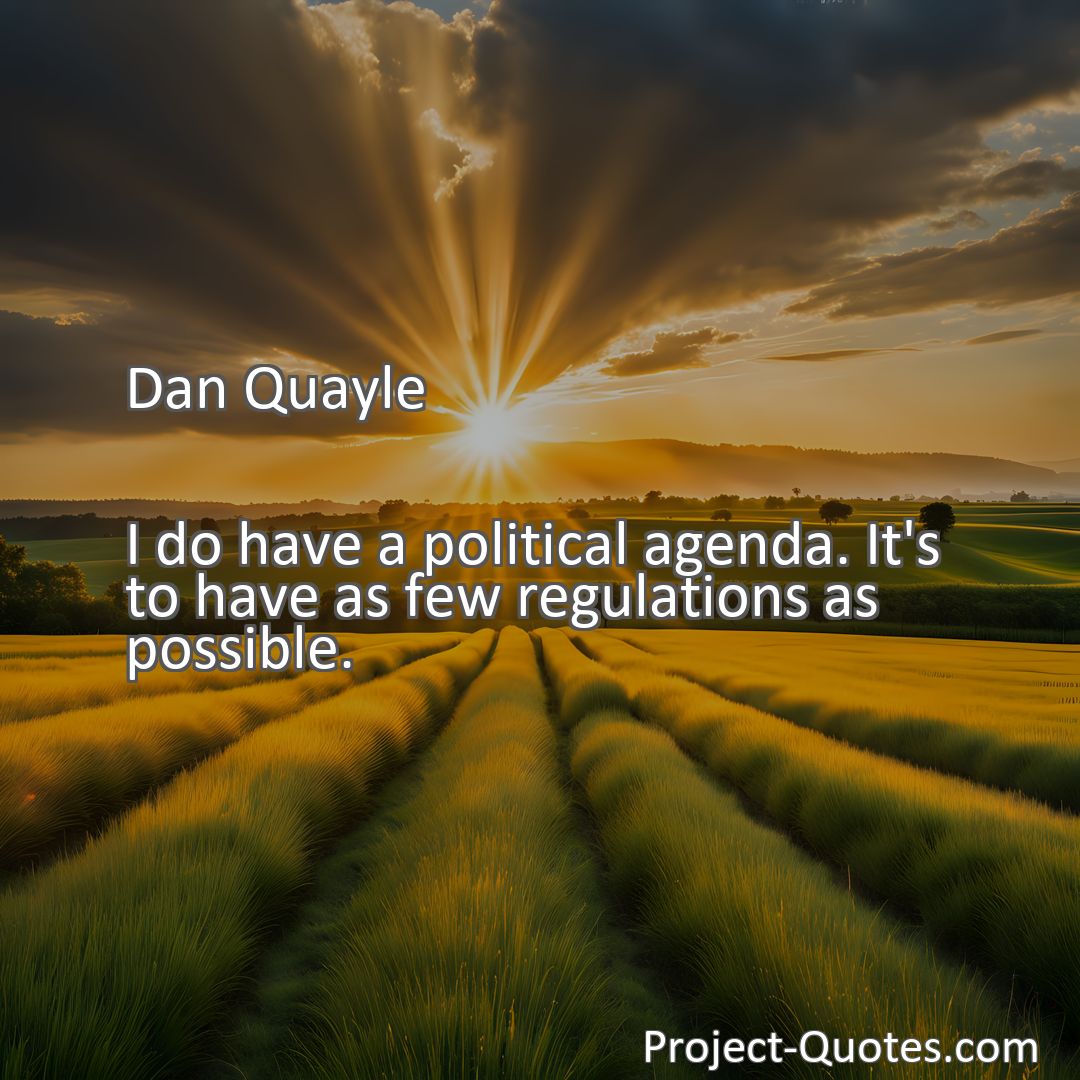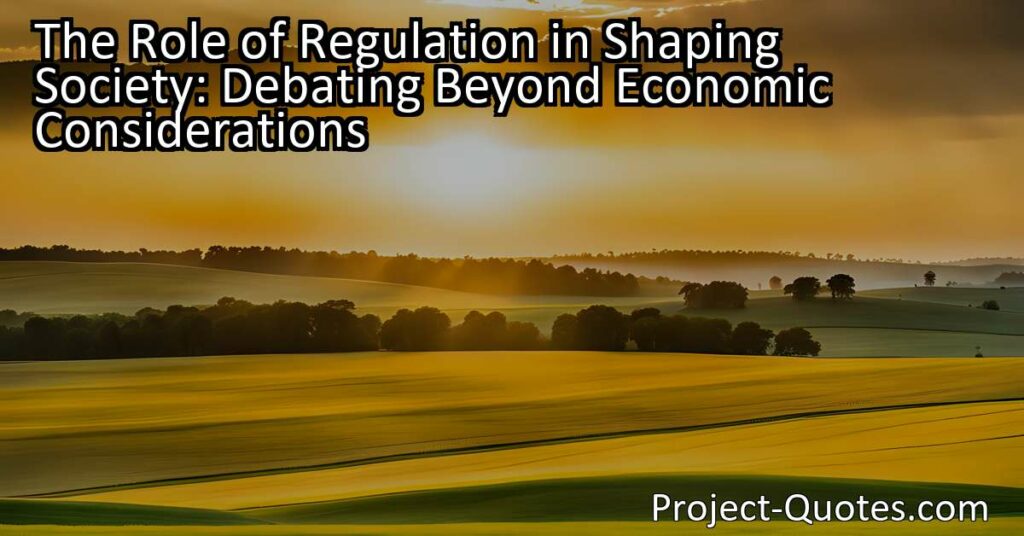I do have a political agenda. It’s to have as few regulations as possible.
Dan Quayle
The debate surrounding regulation extends beyond economic considerations, encompassing issues of social justice, public health, and national security. While limited regulation may enhance individual freedom, it also raises questions about fairness and protecting vulnerable populations. Striking the right balance between individual freedoms and societal well-being is a continual challenge that prompts us to critically evaluate the role of regulation in shaping our societies.
Table of Contents
Meaning of Quote – I do have a political agenda. It’s to have as few regulations as possible.
The Role of Regulation in Shaping Society: Dan Quayle’s Perspective
Introduction :
In a world where governance and regulation play a significant role, it is essential to explore the diverse opinions that shape political agendas. One such viewpoint is expressed in the quote by former Vice President Dan Quayle: “I do have a political agenda. It’s to have as few regulations as possible.” In this piece, we will delve into the idea of minimal regulation and its implications, examining its potential benefits and drawbacks, and considering the broader context in which it operates.
Understanding Regulation :
Regulation refers to the creation and enforcement of rules and guidelines by governmental bodies. These regulations typically aim to protect individuals’ rights, ensure fair practices, and maintain societal order. However, the extent and nature of regulation can vary significantly across different sectors, ranging from economic and environmental policies to social and technological regulations. While regulation often provides necessary safeguards, it can also be viewed as a potential hindrance to personal freedom, economic growth, and overall societal development.
Dan Quayle’s Political Agenda :
The quote attributed to Dan Quayle encapsulates his political stance, emphasizing a preference for limited regulation. Quayle, who served as the Vice President of the United States from 1989 to 1993, expressed a belief in the importance of laissez-faire principles, advocating for minimal government intervention in various spheres of life, including commerce and industry. According to Quayle, reducing regulations can promote economic growth, individual freedom, and free markets by providing businesses and citizens with more autonomy and fewer bureaucratic hurdles.
Economic Implications and Freedoms :
One of the key arguments in favor of reduced regulations, as highlighted by Dan Quayle, revolves around economic growth and the associated increase in personal freedoms. Proponents argue that excessive regulations often burden businesses, hindering their ability to compete globally, innovate, and create employment opportunities. By removing unnecessary red tape, it is believed that businesses can flourish, resulting in a broader range of consumer choices and affordable goods and services.
Critics, on the other hand, argue that deregulation can lead to unethical practices, market failures, and increased income inequality. They contend that regulations serve as a safeguard against exploitation and ensure fair competition. Without appropriate oversight, industries may neglect environmental sustainability, engage in unethical behavior, or compromise public health and safety.
Safeguarding Consumers and the Environment :
Regulations are often put in place to protect consumers from fraudulent practices and ensure product safety. Advocates for fewer regulations argue that overly stringent rules can stifle innovation and competition, making it challenging for businesses to bring new products to market or explore breakthrough technologies. However, the absence of adequate regulation can also expose consumers to potential harm. For example, deregulated industries such as pharmaceuticals, food production, and financial services may prioritize profits over public welfare, potentially compromising consumer safety.
Environmental regulation is another area of contention. Proponents of minimal regulation assert that industries can self-regulate their impact on the environment through market forcesan argument often associated with “green capitalism.” Conversely, opponents argue that environmental regulation is essential to enforce sustainable practices, preserve natural resources, and prevent irreversible damage to ecosystems. They posit that without regulations, businesses may prioritize short-term profits over long-term environmental preservation.
Balancing Individual Freedom and Societal Well-being :
The debate surrounding regulation extends beyond economic considerations to encompass issues like social justice, public health, and national security. While limited regulation may enhance individual freedom, it also raises questions about ensuring fairness and protecting vulnerable populations. Government regulations often address issues such as discrimination, workers’ rights, public health crises, and national security threats. These measures aim to create a fair and secure society where citizens can live with dignity, free from discrimination or force.
Conclusion :
In considering Dan Quayle’s political agenda to minimize regulations, it is important to acknowledge the complexity of the issues involved. Striking the right balance between individual freedoms and societal well-being remains a continual challenge. While excessive regulations can impede innovation and economic growth, the absence of relevant regulations can lead to exploitation, market failures, and environmental degradation. Ultimately, this ongoing debate prompts us to critically evaluate the role of regulation in shaping our societies, striving for a delicate equilibrium that respects individual rights while safeguarding collective interests.
I hope this quote inspired image brings you hope and peace. Share it with someone who needs it today!


